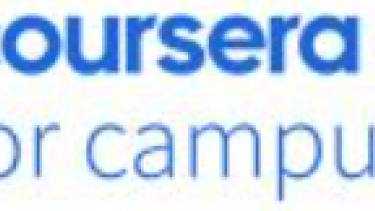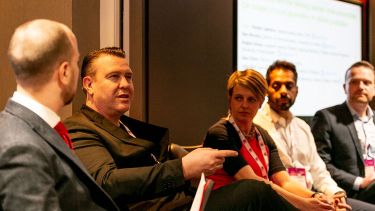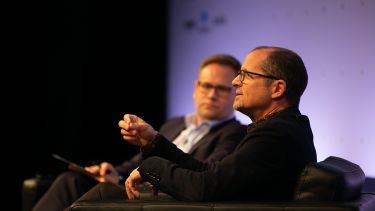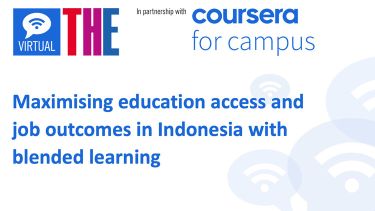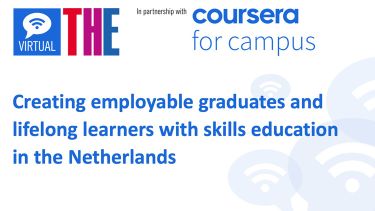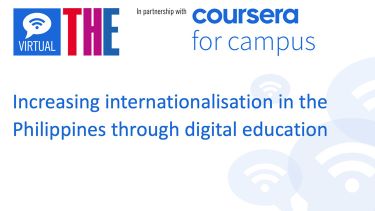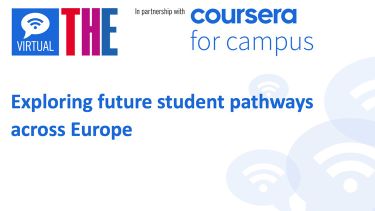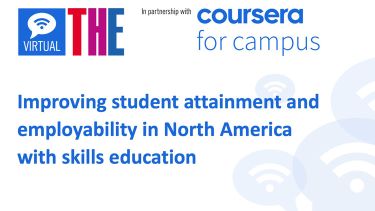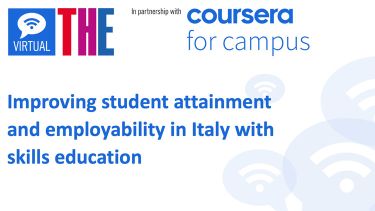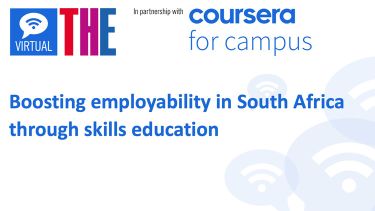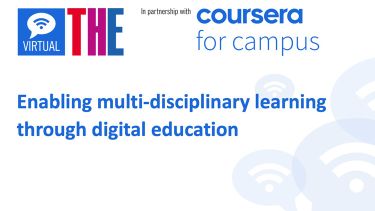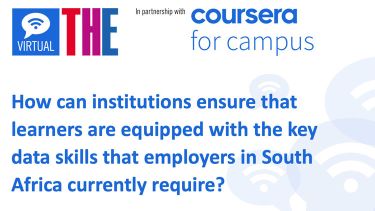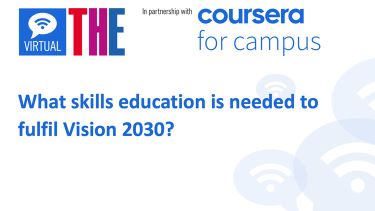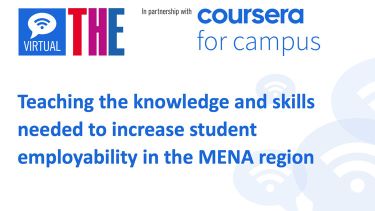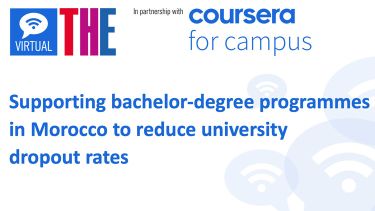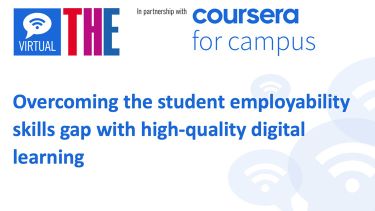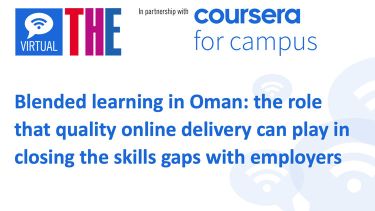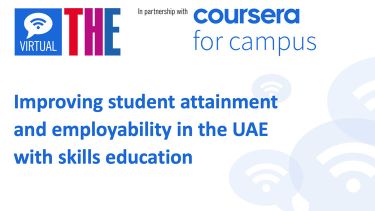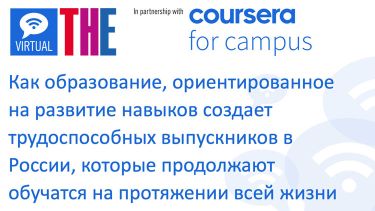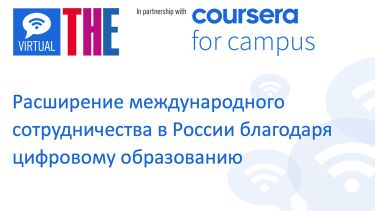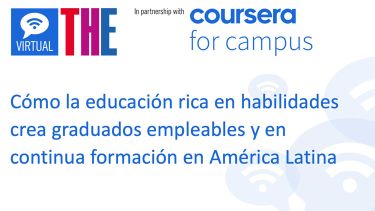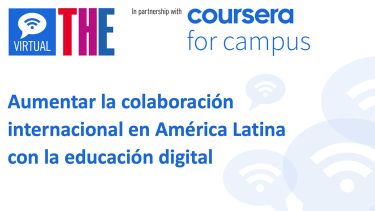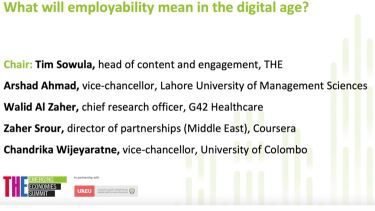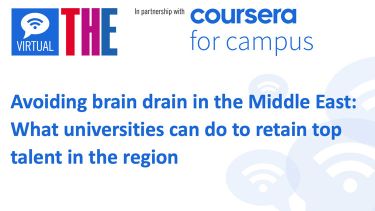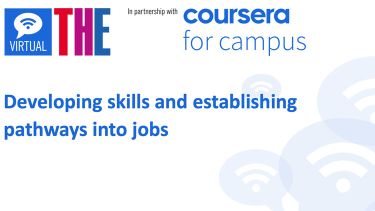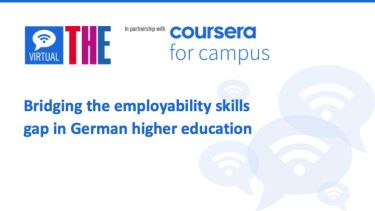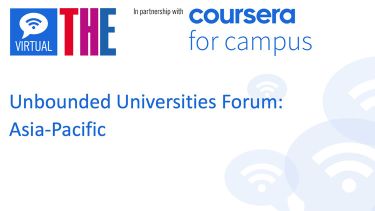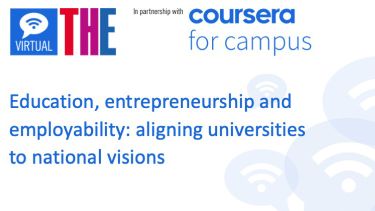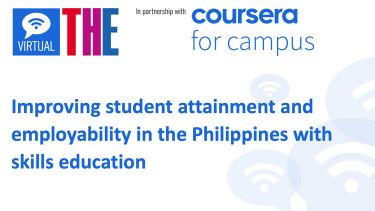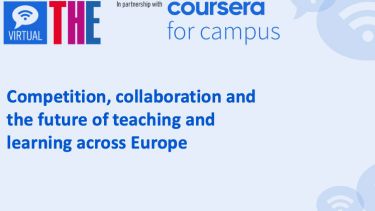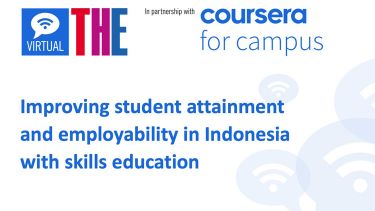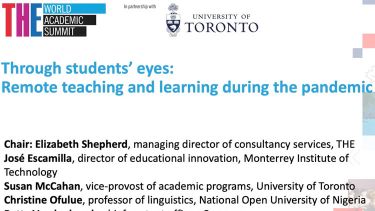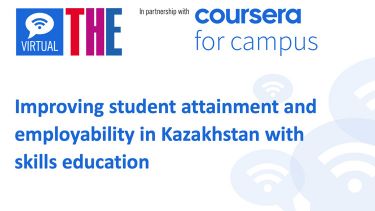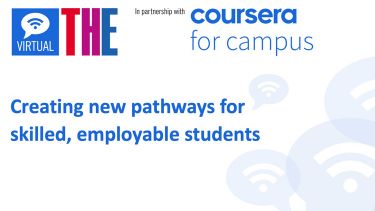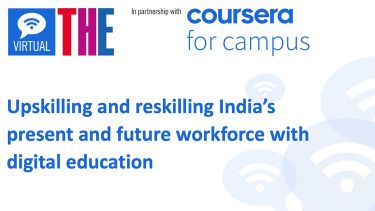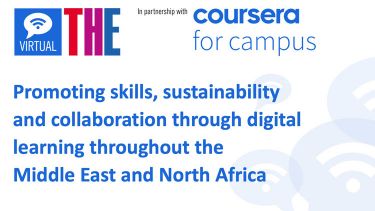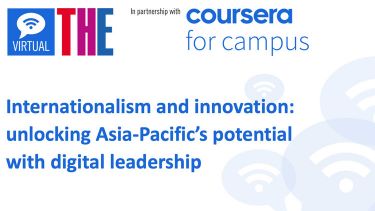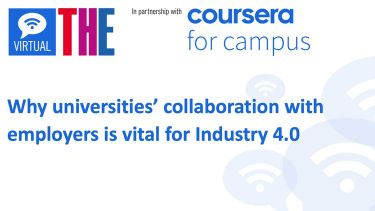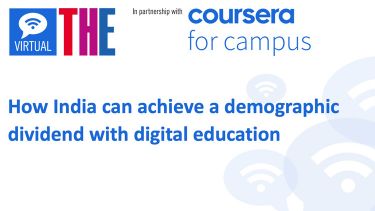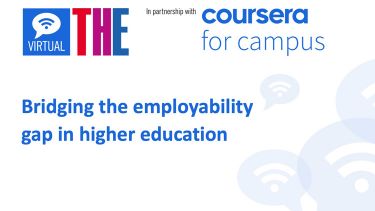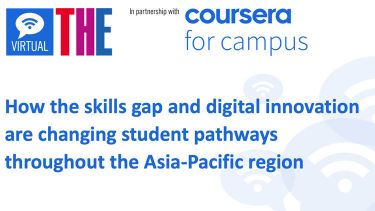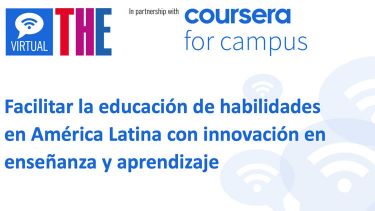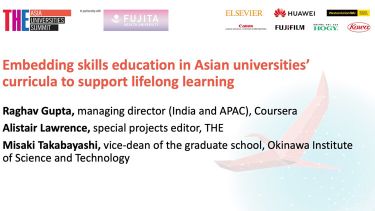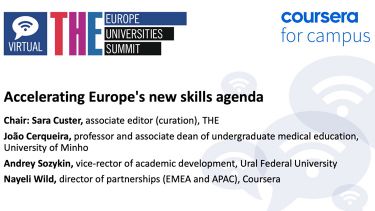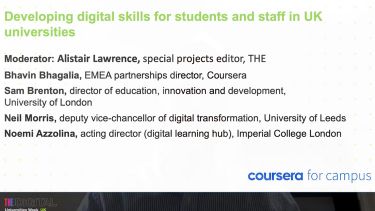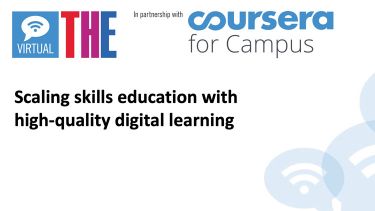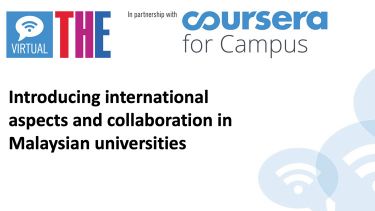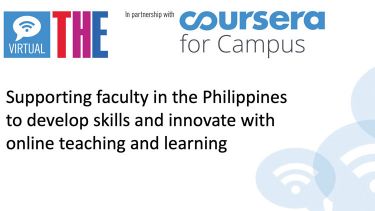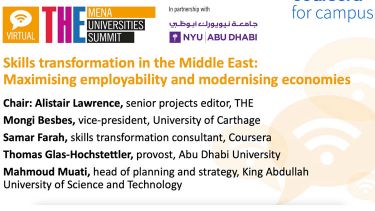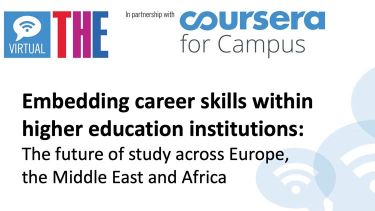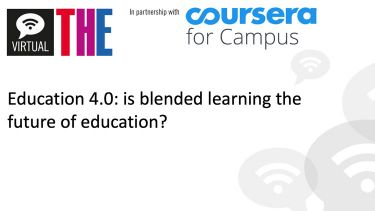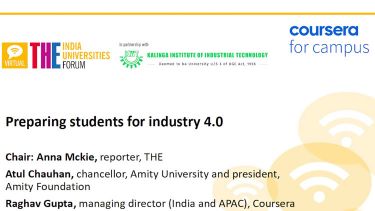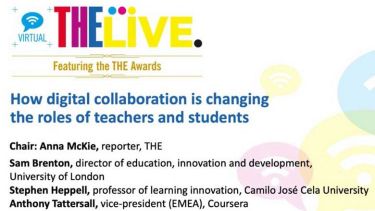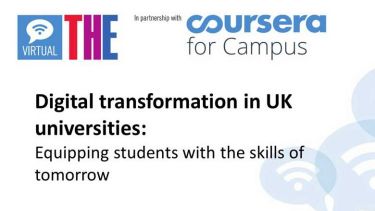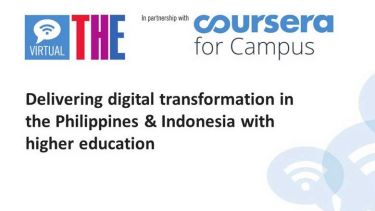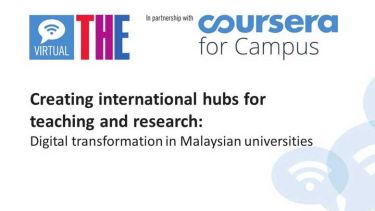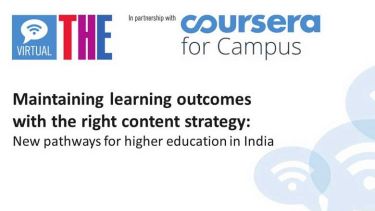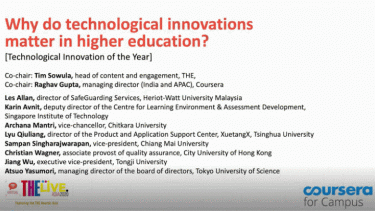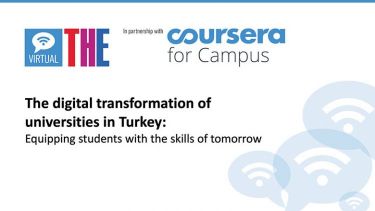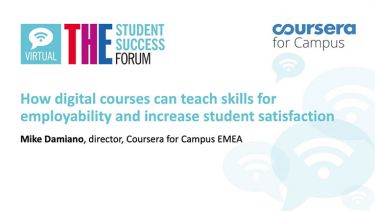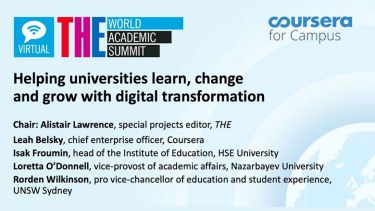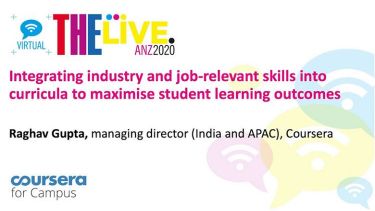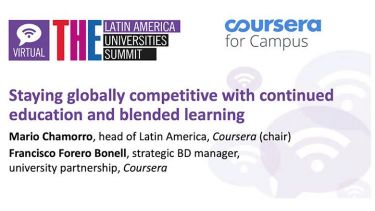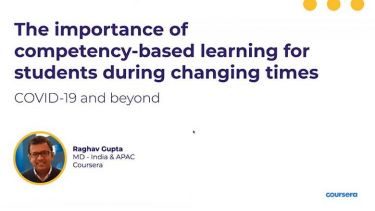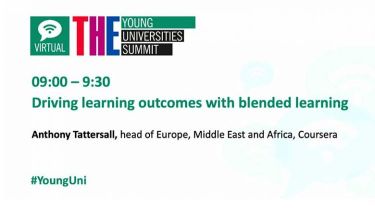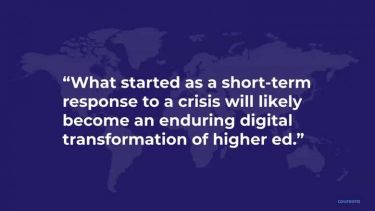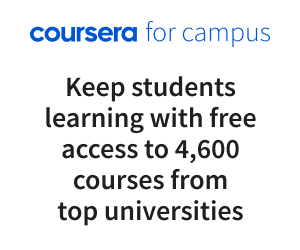Teaching entrepreneurialism and preparing students for lifelong learning may boost graduate employability and reduce the brain drain in Romania
Round table took place in December 2021.
Learning how to learn and focusing on digital and human skills can help prepare Romanian graduates for their careers and slow the country’s talent drain.
A Times Higher Education round table, held in partnership with Coursera for Campus, asked a panel of academic and industry experts how skills education can help Romania retain graduates and create a thriving economy.
Chair Ashton Wenborn, special projects deputy editor at Times Higher Education, said Romania was noted as an emerging tech ecosystem in Europe but its population had seen a significant decline in recent years. She said digital skills education could be crucial to keeping graduates in the local workforce.
Evghenia Iarina, director of partnerships at Coursera, said the company had seen a high demand for digital skills training among the 92 million learners on the platform, which offers short, “how to” courses teaching practical skills that can be embedded into curricula. Iarina said this tied in with a demand from industry for a combination of technical and human skills.
“No matter if students are studying architecture or they're studying medicine, technology is something that is relevant to all of them,” she said. “We can see the value of human skills is increasing a lot, the value of critical thinking skills is increasing a lot. The logical question would be, ‘what are these jobs that machines cannot replace? And what can we leverage as humans to stay competitive?’”
Alexandru-Ionut Petrisor, director of ranking data at Ion Mincu University of Architecture and Urbanism, said he had been involved in a study in which graduates were asked what skills and knowledge they used in their profession.
“The answers of the graduates showed that it was fairly impossible to get your education for that profession from only one university,” he said. “During their professional experience, they had to go and take more courses to acquire all the skills and knowledge necessary just for a basic performance of the profession.”
For students of architecture and urban planning, Petrisor said, “learning how to learn” was essential as soon as they began their university education.
A Statista survey found that 45 per cent of Romanian companies considered upskilling and reskilling the best way to close the skills gap. Another 27 per cent said it was establishing a strong pipeline from education into industry.
Romana Cramarenco, head of lifelong learning at Babes Bolyai University, Cluj Napoca, said the last two years had highlighted the value of “student-centred learning systems”. She said the needs of students had to be balanced with demands from industry.
“The best solution was to extend partnerships with the business environment and industry programmes to ease the student’s transition from the university to the labour market to the specificities of one job,” Cramarenco said.
With the move to blended learning accelerated by the pandemic, faculty needed their own skills training. “For the teachers, for example, we provided plenty of training programmes, not just for the use of the platforms, but more focused on how each and every teacher should adapt the content,” Cramarenco said.
Irina Lungu, vice-rector for international relations at Gheorghe Asachi Technical University of Iasi, said the institution was committed to offering “lifelong learning paths” aimed at upskilling. Asked how to keep future graduates in Romania, Lungu said the university encouraged entrepreneurship, including running courses and investing in student businesses.
“What we try to do is train and provide the mindset, not necessarily the knowledge, for starting their own business, for entrepreneurship,” she said.
The panel:
- Romana Cramarenco, head of lifelong learning, Babes Bolyai University, Cluj Napoca
- Evghenia Iarina, director of partnerships, Coursera
- Irina Lungu, vice-rector for international relations, Gheorghe Asachi Technical University of Iasi
- Alexandru-Ionut Petrisor, director of ranking data, Ion Mincu University of Architecture and Urbanism
- Ashton Wenborn (chair), special projects deputy editor, Times Higher Education
Watch the round table on demand above or on the THE Connect YouTube channel.
Find out more about Coursera for Campus.


